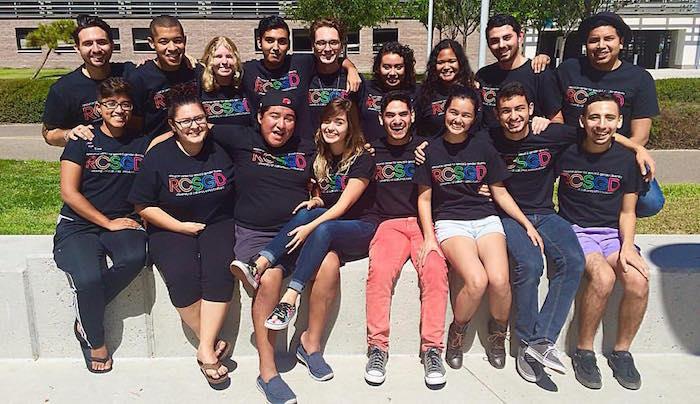Top Stories
This is the advice that Alex Kulick, a second-year Ph.D. student in UCSB's Sociology Department, says he would give to fellow graduate students. Alex, a native of Michigan, earned a Bachelor of Arts degree in Women's Studies from the University of Michigan and now serves as the graduate assistant at UCSB's Resource Center for Sexual and Gender Diversity.
"Grad school is 'real life,' and our happiness, fulfillment, and health during graduate school are just as important as the long-term gains we can attain from our studies and work."
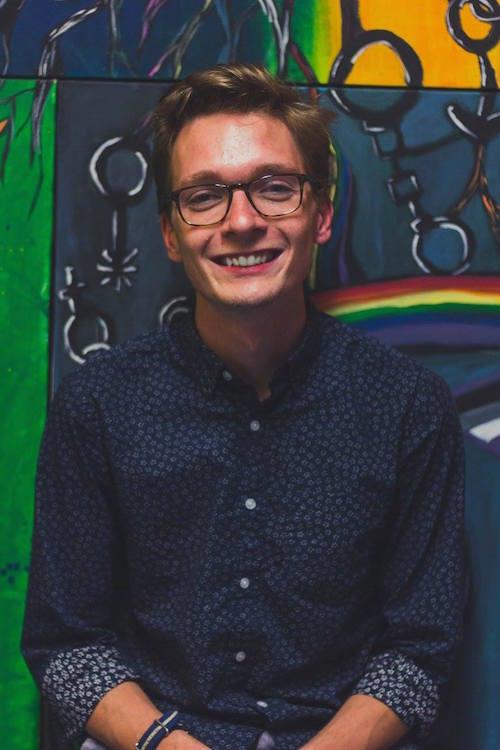 This is the advice that Alex Kulick, a second-year Ph.D. student in UCSB's Sociology Department, says he would give to fellow graduate students. Alex, a native of Michigan, earned a Bachelor of Arts degree in Women's Studies from the University of Michigan and now serves as the graduate assistant at UCSB's Resource Center for Sexual and Gender Diversity. He sat down with us to answer some questions about his community-based research, his biggest challenge in grad school, and who his hero is.
This is the advice that Alex Kulick, a second-year Ph.D. student in UCSB's Sociology Department, says he would give to fellow graduate students. Alex, a native of Michigan, earned a Bachelor of Arts degree in Women's Studies from the University of Michigan and now serves as the graduate assistant at UCSB's Resource Center for Sexual and Gender Diversity. He sat down with us to answer some questions about his community-based research, his biggest challenge in grad school, and who his hero is.
Tell us a little about your childhood and upbringing.
I grew up living with my parents and brother, and I was connected to a supportive and loving extended family and community. Growing up as a queer young person certainly posed some challenges for me - especially socially - but after coming out in high school, I was lucky enough to find a strong LGBTQ community through a local community-based teen center.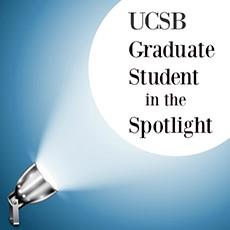
Is there any particular event that had a big impact or influence on you and helped shape who you are today?
The process of coming out as queer has been hugely influential on my life, values, and work. While the process of self-discovery and self-expression has certainly been important within this, I think that it's been more so the strength, diversity, compassion, and love of LGBTQ communities into which I have grown and developed. This has been the most key in helping me to critically examine and improve my relationships with myself, others, and the communities in which I live.
Tell us a little about your research and how you came to choose the topic.
My research focuses on processes, potentials, and challenges of collective social change efforts, with a particular emphasis on the leadership and strengths of queer and LGBT communities. I am currently working on a few different projects: one is examining the discursive strategies used in same-sex marriage advocacy; the second is examining the experiences of LGBTQ college students nationwide; and the third is documenting and analyzing the creative strategies of queer youth advocates in Michigan. This work has grown from my experiences as an activist and organizer with LGBTQ communities, including my belief in and commitment to the mutually beneficial relationships among academics, intellectuals, organizers, and activists.
What has graduate student life been like for you?
Grad school has been full of surprises! Going from working full time in southeast 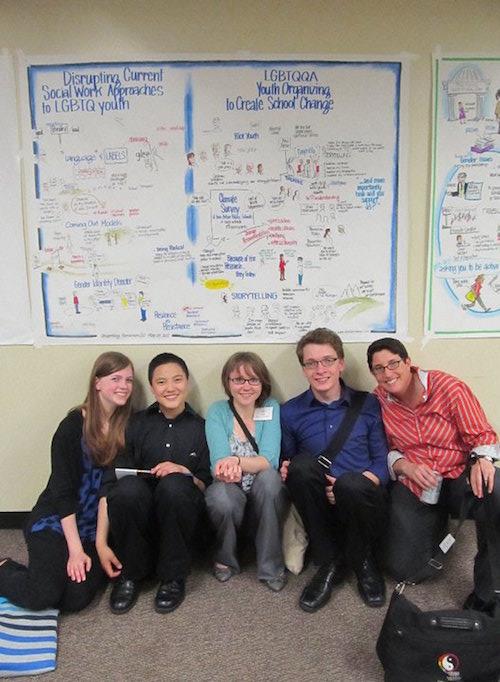 Michigan to living and being a graduate student in Santa Barbara has been a culture shock in more ways than one. While this has certainly been trying at times, it has also allowed me to put in the time and work into readjusting my expectations for work, school, life, and - of course - balance.
Michigan to living and being a graduate student in Santa Barbara has been a culture shock in more ways than one. While this has certainly been trying at times, it has also allowed me to put in the time and work into readjusting my expectations for work, school, life, and - of course - balance.
What do you wish you had known before you started grad school? What do you like most about grad school and what do you like least?
I think the biggest surprise and challenge of graduate school has been a combination of learning to pace myself and developing strategies to sustain a healthy and fulfilling life while being a graduate student. Although I knew going in that grad school would be a place of intellectual challenges and professional growth, I was less prepared for the emotional, mental, and physical adjustments it would take.
I am incredibly grateful for the amount of autonomy and independence I have as a grad student, both in shaping the trajectory of my graduate studies, as well as in day-to-day life.
On the flip side, the ambiguity and lack of structure that comes with this autonomy is also my least favorite part of navigating grad life.
What has been a source of motivation or drive for you in your graduate studies?
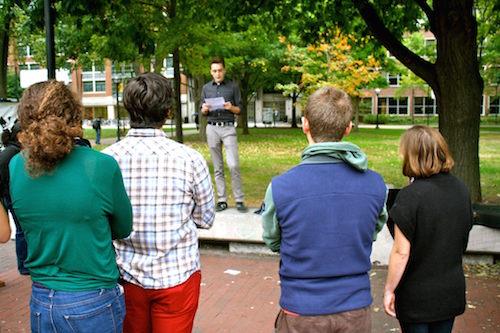 The strongest source of motivation and drive have been my connections to family, community, and work outside of graduate school and academic life. The relationships I have in these spaces are really key in holding me accountable to the enormous privilege that being a graduate student affords. As well, these connections also help me continually feel grounded in the applications and implications of my research and writing.
The strongest source of motivation and drive have been my connections to family, community, and work outside of graduate school and academic life. The relationships I have in these spaces are really key in holding me accountable to the enormous privilege that being a graduate student affords. As well, these connections also help me continually feel grounded in the applications and implications of my research and writing.
Who is your hero and why?
One of my many (s)heroes is Adrienne Rich, the lesbian feminist poet and theorist. In particular, I love this passage from the convocation address she gave at Douglass
College in 1977:
"Responsibility to yourself means refusing to let others do your thinking, talking, and naming for you; it means learning to respect and use your own brains and instincts; hence, grappling with hard work. ... It means that we insist on a life of meaningful work, insist that work be as meaningful as love and friendship in our lives. It means, therefore, the courage to be 'different'; not to be continuously available to others when we need time for ourselves and our work; to be able to demand of others - parents, friends, roommates, teachers, lovers, husbands, children - that they respect our sense of purpose and our integrity as persons."
As well, I feel lucky and blessed to have a number of different mentors and co-mentors with whom I'm able to be vulnerable with my work, professional development, goals, dreams, strengths, and challenges. It's been especially helpful for me to reach out to my peers, including other grad students, as co-mentors as we go through this journey together.
Name an accomplishment you are most proud of and why.
I think the accomplishment that I've been most proud and excited about recently has 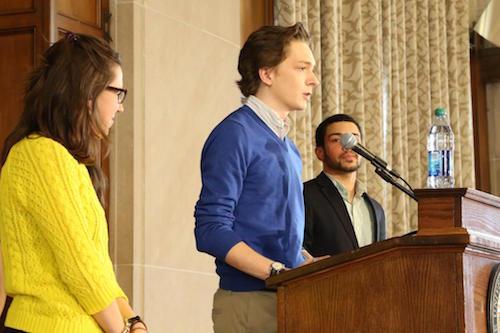 been learning to travel alone. Although embarking on journeys by myself is often scary, I've found that learning to be independent in this process of setting out has opened me up to a whole new set of experiences and people that I'm eternally grateful for.
been learning to travel alone. Although embarking on journeys by myself is often scary, I've found that learning to be independent in this process of setting out has opened me up to a whole new set of experiences and people that I'm eternally grateful for.
What are your favorite hobbies?
One of the great joys of my life is taking long drives, despite the ever-present guilt from the feeling of wasting time, money, and gas. I've also recently begun a meditation practice, which has immeasurably helped me cultivate a sense of peaceful, calm determination. And of course, Netflix. My favorite shows include (but are certainly not limited to) "Gilmore Girls," "Parks and Rec," "Steven Universe," and "Avatar: The Last Airbender."
What is one thing people would be surprised to know about you?
I've seen every episode of "Malcolm in the Middle" and "Roseanne."
What do you hope to be doing 5 or 10 years out of graduate school?
Following graduate school, I am hoping to be working in a position that enables me to engage with and balance research and writing, community work, teaching, and organizing. Although this setup could be ideally located in a university setting, I could also see myself doing non-profit work, consulting, and/or some combination of part-time work.
